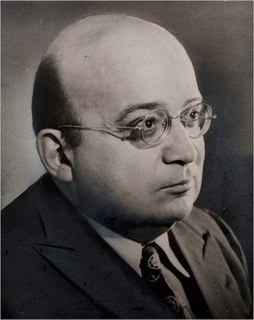A Quote by A. J. Liebling
A Louisiana politician can't afford to let his animosities carry him away, and still less his principles, although there is seldom difficulty in that department.
Quote Topics
Related Quotes
For one who feels compelled, as I do, to accept the existence of the Master Architect, it is important to examine his handiwork for the light it throws on him and on his program for his children. For me, there has been no serious difficulty in reconciling the principles of true science with the principles of true religion.
And still Meriadoc the hobbit stood there blinking through his tears, and no one spoke to him, indeed none seemed to heed him. He brushed away the tears, and stooped to pick up the green shield that Eowyn had given him, and he slung it at his back. Then he looked for his sword that he had let fall; for even as he struck his blow his arm was numbed, and now he could only use his left hand.
Some souls think that the Holy Spirit is very far away, far, far, up above. Actually he is, we might say, the divine Person who is most closely present to the creature. He accompanies him everywhere. He penetrates him with himself. He calls him, he protects him. He makes of him his living temple. He defends him. He helps him. He guards him from all his enemies. He is closer to him than his own soul. All the good a soul accomplishes, it carries out under his inspiration, in his light, by his grace and his help.
A politician weakly and amiably in the right is no match for a politician tenaciously and pugnaciously in the wrong. You cannot, by tying an opinion, to a man's tongue, make him the representative of that opinion; and at the close of any battle for principles, his name will be found neither among the dead nor among the wounded, but among the missing.
The orator, who may be silent without danger, may praise without difficulty and without reluctance; and posterity will confess that the character of Theodosius might furnish the subject of a sincere and ample panegyric. The wisdom of his laws and the success of his arms rendered his administration respectable in the eyes both of his subjects and of his enemies. He loved and practised the virtues of domestic life, which seldom hold their residence in the palaces of kings.
As the years go by, he returns to this invisible world rather than to earth for peace and solace. There also he finds a profound enchantment, although he can seldom describe it. He can discuss it with others of his kind, and because they too know and feel its power they understand. But his attempts to communicate his feelings to his wife or other earthly confidants invariable end in failure.
































